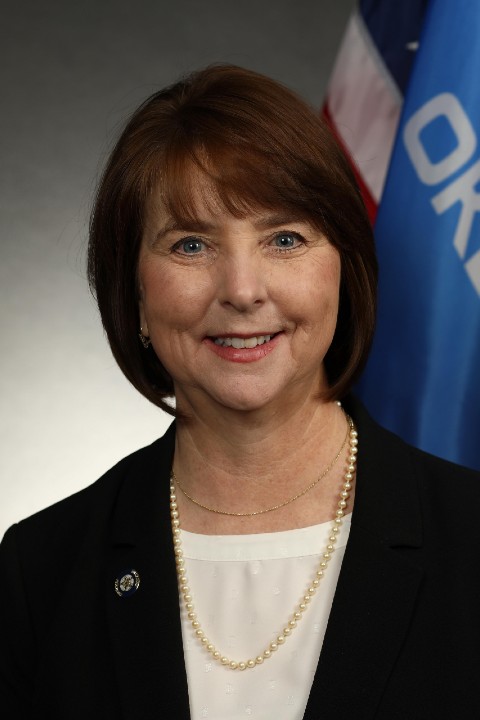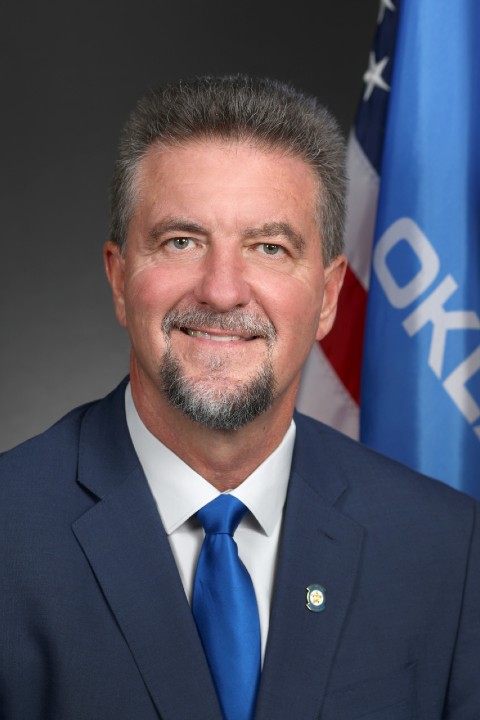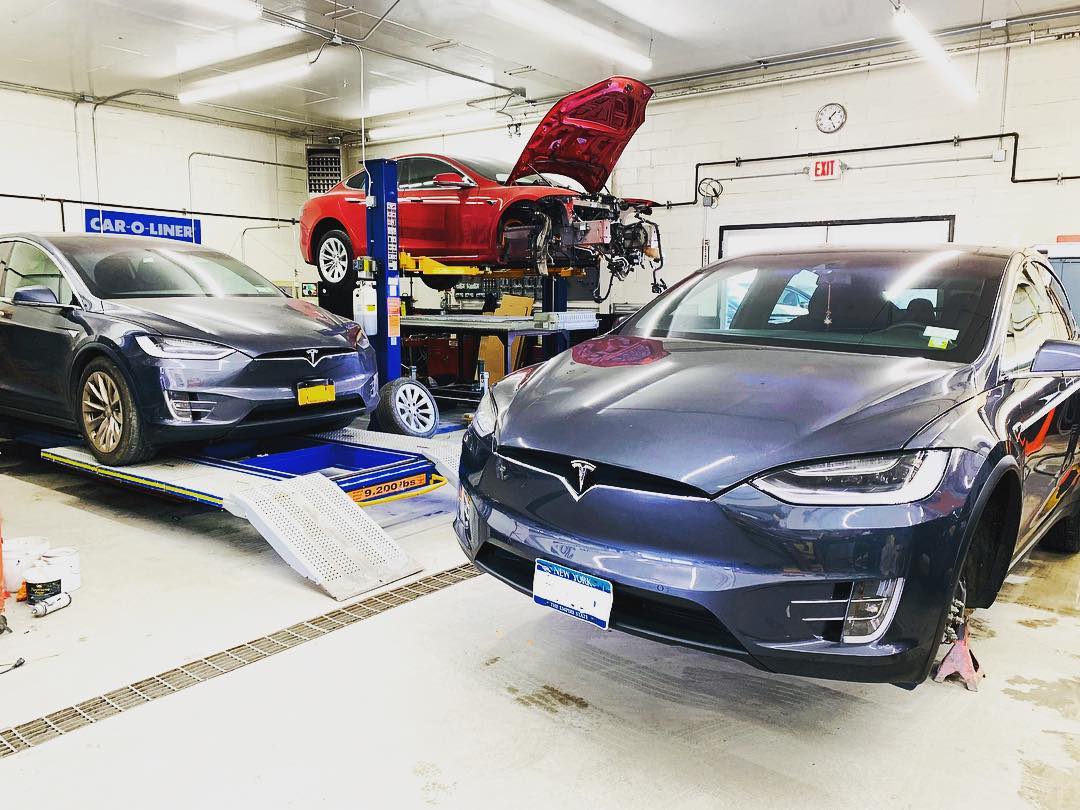
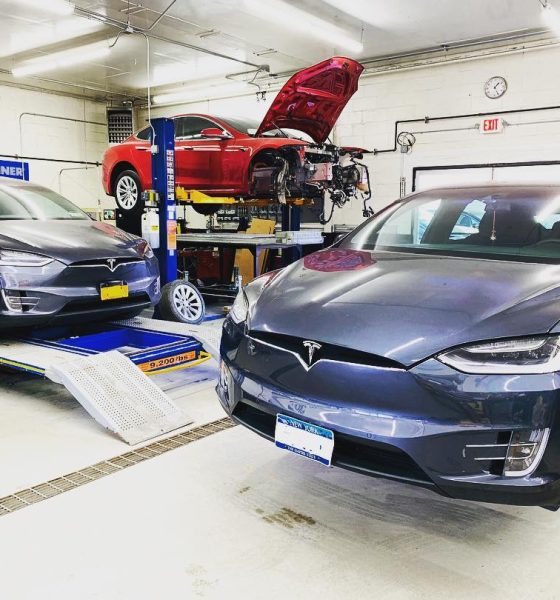
News
As OK’s anti-Tesla bill moves forward, its author believes a compromise is possible
The electric vehicle community in the United States took a collective gasp earlier this month when a proposed House Bill in Oklahoma unanimously passed a committee vote. The bill in question, HB 3994, aims to update and change parts of existing Oklahoma statutes related to the state’s auto industry. Now, this may sound harmless enough, but a look at the 70-page bill shows that companies like Tesla could lose out heavily if HB 3994 becomes law.
Tesla is already not allowed to directly sell its cars to consumers in Oklahoma, but HB 3994 could give the company even more headaches. What is particularly alarming with HB 3994’s language is the fact that it could be interpreted as a means to prevent automakers like Tesla from delivering and servicing vehicles in the state. This may result in Oklahoma-based Tesla owners being required to travel out of state just to have their vehicles serviced.
Tesla takes the bill very seriously, with the company urging owners on its Engage page to vote “No” to HB 3994. “If passed, this bill could force Tesla to close its existing locations in Oklahoma and prevent Tesla from shipping cars to anyone in the state, which would force locals to travel out-of-state to service their cars or pick up their new Tesla vehicles. Oklahoma should focus on increasing revenue and jobs in the state, not stifling competition and limiting consumer choice,” Tesla noted on its Engage page.
Oppositions and Risks
To state that Oklahoma-based Tesla owners are passionately trying to prevent HB 3994 from progressing further would be an understatement. Tesla owners are currently lobbying against the bill, with some even heading to the capitol last week to speak with the bill’s author, Representative Mike Dobrinski, who has an extensive background in the state’s auto sector. As per Dobrinski’s LinkedIn page, he was the Owner/Dealer of Dobrinski Chevrolet, Inc. until March 2017, and he was the Dealer/Owner of Dobrinski of Kingfisher, Inc., a Chevrolet-Buick-GMC dealership, until October 2018.
The Tesla owners’ talk with the Representative at the capitol last week was brief, according to information shared with Teslarati. Dobrinski highlighted the idea that HB 3994 is a way to protect Tesla owners in Oklahoma because if the EV maker refuses to cover its customers under warranty, then consumers will have no backup. Such a scenario seems unlikely, however.
It’s not just Tesla owners in the state who are against HB 3994. Oklahoma Senator Mary B. Boren, who drives a Tesla Model 3 herself, has openly criticized the bill. In a short conversation with Teslarati, Senator Boren noted that Oklahoma must let the product and the market decide if the state wants innovation to flourish. Initiatives such as HB 3994, which could result in automakers with no dealerships getting the short end of the stick, are counterproductive.
The Senator’s statements could very well ring true. Just recently, reports emerged that Tesla battery partner Panasonic has decided to acquire a factory site in the United States for the production of high-capacity lithium-ion batteries. Panasonic has reportedly shortlisted its preferred US locations to Oklahoma and Kansas. Senator Boren remarked that the presence of bills like HB 3994 could potentially discourage companies like Panasonic from investing in Oklahoma.
“If you have capitalistic laws being passed to protect a particular industry and their business model and to insulate them from the market demands that require them to adjust, then any innovative industry related to EVs will notice that — and they will notice that cronyism is at play. They will find friendlier environments,” Sen. Boren said.
Insights from HB 3994’s Author
The fact that HB 3994 unanimously passed a committee vote earlier this month shows that the bill is also seeing substantial support, despite its harsh repercussions on companies like Tesla and its local electric vehicle owners. When asked by Teslarati about the rationale behind the controversial bill, Rep. Dobrinski explained that HB 3994 is a request bill from the Oklahoma Auto Dealer Association.
“A request bill from the Oklahoma Auto Dealer Association, it seeks to strengthen the position of franchised dealers from the ever-increasing demands and requirements of their legacy manufacturers. Doing so requires addressing Direct Shippers, including Tesla, that are not currently regulated by the Oklahoma Motor Vehicle Commission like franchised dealers are. Proper legislation and regulation will ensure that existing service facilities may remain open and consumers will have additional protections,” Dobrinski noted.
Interestingly enough, the Representative admitted that while HB 3994 includes provisions that may be used to force Tesla into closing its service centers in the state, he does not expect that part of the bill to make it to HB 3994’s final iteration. “I do not expect that provision to be included in the (bill’s) final language,” Dobrinski later stated.
The Representative deserves praise for his honesty with HB 3994, though one may wonder why the controversial bill’s most heavy-handed provisions were included in the first place. When confronted by Tesla owners online, Dobrinski has maintained that HB 3994 is far from finished, but it has already opened the doors for communication among automotive businesses in the state.
“This bill, as introduced, is far from the finished product. It is forcing engagement from franchise auto dealers, legacy manufacturers, and new EV manufacturers, including Tesla. These folks are all talking now for the first time ever to work on a plan of regulation going forward that ensures competition and improves customer satisfaction under the purview of the Oklahoma Motor Vehicle Commission,” Dobrinski wrote.
A Price for Compromise?
Considering the statements of HB 3994’s author, it appears that the bill could partly be seen as a way to achieve a compromise of sorts between companies like Tesla, electric vehicle owners, and the state’s franchised auto dealerships. However, existing Tesla owners in Oklahoma fear that if HB 3994 passes into law, it could adversely affect not only their ownership experience but also their daily lives.
Cristen Winter Huber, a Tesla owner and a foster mother, is one of them. Being a foster mother, Huber is unable to take her foster children outside Oklahoma without a judge’s permission. According to Huber, the harsher portions of HB 3994 could effectively disrupt her family dynamic, and it might motivate her to leave the state.
“It’s not feasible for my family to drive out of state frequently. I’m a parent and foster parent. I have to get approval from a judge to take my foster child out of state. If I have to leave the state to service my car, I might as well move to a state that welcomes growth and innovation,” Huber said.
Jochen Hoppert, the President of the Tesla Owners Club of Oklahoma, noted that HB 3994 is not only a step in the wrong direction — it can have repercussions far beyond Tesla. The Tesla Club President also stated that so far, the EV maker’s service centers in Oklahoma City and Tulsa are proving that Tesla is serious about supporting its customers.
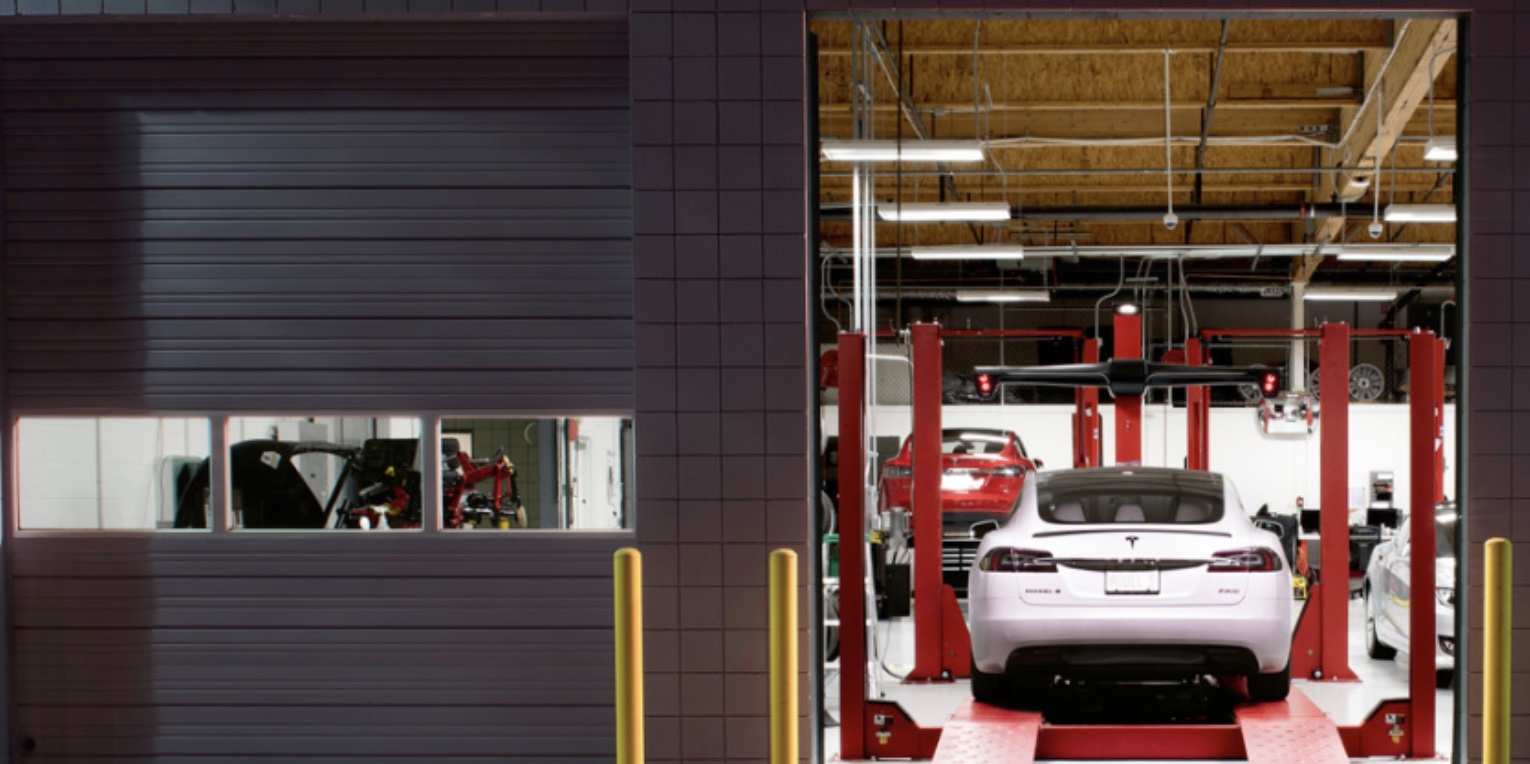
“Tesla is still not permitted to sell or deliver vehicles from those locations. We hope that will change in the future, yet this anti-competitive bill is clearly a step in the opposite direction. It’s worth noting that this move would not only negatively affect Tesla and the local Tesla community but other up-and-coming electric vehicle manufacturers wishing to do business in the state.
“Rep. Mike Dobrinski, the creator of this bill… has shared his perspective, which includes the notion that this bill would provide benefit to the consumer by allowing the state to manage the presence of warranty, service, and other such things for the consumer as required features of the electric vehicle marketplace. The Tesla service centers in Oklahoma City and Tulsa already demonstrate Tesla’s desire to provide its customers with such services,” Hoppert said.
Following its unanimous committee approval, House Bill 3994 has now advanced to the House Floor. But before the bill could become a law, the Oklahoma Governor would have to approve it first. With this in mind, Tesla owners and electric vehicle advocates still have some time to fight against the bill, or at least lobby for significant changes. Rep. Mike Dobrinski himself has been consistent with the idea that HB 3994 is still open for edits, so it may be a good idea for Tesla owners in the state to push their efforts even more from this point forward.
Those interested in speaking up and supporting Tesla’s efforts against Oklahoma’s HB 3994 could click here.
A copy of Oklahoma HB 3994 could be viewed below.
Hb3994 Int by Simon Alvarez on Scribd
Don’t hesitate to contact us with news tips. Just send a message to simon@teslarati.com to give us a heads up.

News
Tesla workers push back against Giga Berlin unionization
“IG Metall did not succeed in Giga Berlin‘s works council election earlier today. The union share was reduced from nearly 40% in 2024 to 31% in 2026! This is a clear message by the Giga Berlin team towards an independent co-determination! The list called Giga United, led by the current chairwoman, Michaela Schmitz, received the most votes with more than 40%! Good news for Giga Berlin!”

Tesla workers pushed back against unionization efforts at Gigafactory Berlin, and over the past few years, there has been a dramatic decrease in interest to unionize at the German plant.
Gigafactory Berlin Plant Manager André Thierig announced on Wednesday that IG Metall, the European union group, saw its share reduce from 40 to 31 percent in 2026 as employees eligible to vote on the issue. Instead, the Giga Berlin team, known as Giga United, received the most votes with more than 40 percent.
BREAKING! 🚨
IG Metall did not succeed in Giga Berlin‘s works council election earlier today. The union share was reduced from nearly 40% in 2024 to 31% in 2026!
This is a clear message by theGiga Berlin team towards an independent co-determination!
The list called Giga…
— André Thierig (@AndrThie) March 4, 2026
Thierig gave specific details in a post on X:
“IG Metall did not succeed in Giga Berlin‘s works council election earlier today. The union share was reduced from nearly 40% in 2024 to 31% in 2026! This is a clear message by the Giga Berlin team towards an independent co-determination! The list called Giga United, led by the current chairwoman, Michaela Schmitz, received the most votes with more than 40%! Good news for Giga Berlin!”
There were over 10,700 total employees who were eligible to vote, with 87 percent of them turning out to cast what they wanted. There were three key outcomes: Giga United, IG Metall, and other notable groups, with the most popular being the Polish Initiative.
The 37-seat council remains dominated by non-unionized representatives, preserving Giga Berlin as Germany’s only major auto plant without a collective bargaining agreement.
Thierig and Tesla framed the outcome as employee support for an “independent, flexible, and unbureaucratic” future, enabling acceleration on projects like potential expansions or new models. IG Metall expressed disappointment, accusing management of intimidation tactics and an “unfair” campaign.
The first election of this nature happened back in 2022. In 2024, IG Metall emerged as the largest single faction with 39.4 percent, but non-union lists coalesced for a majority.
But this year was different. There was some extra tension at Giga Berlin this year, as just two weeks ago, an IG Metall rep was accused by Tesla of secretly recording a council meeting. The group countersued for defamation.
Tesla Giga Berlin plant manager faces defamation probe after IG Metall union complaint
This result from the 2026 vote reinforced Tesla’s model of direct employee-management alignment over traditional German union structures, amid ongoing debates about working conditions. IG Metall views it as a setback but continues advocacy. Tesla sees it as validation of its approach in a competitive EV market.
This outcome may influence future labor dynamics at Giga Berlin, including any revival of expansion plans or product lines, which Musk has talked about recently.
News
SpaceX President Gwynne Shotwell details xAI power pledge at White House event
The commitment was announced during an event with United States President Donald Trump.

SpaceX President Gwynne Shotwell stated that xAI will develop 1.2 gigawatts of power at its Memphis-area AI supercomputer site as part of the White House’s new “Ratepayer Protection Pledge.”
The commitment was announced during an event with United States President Donald Trump.
During the White House event, Shotwell stated that xAI’s AI data center near Memphis would include a major energy installation designed to support the facility’s power needs.
“As you know, xAI builds huge supercomputers and data centers and we build them fast. Currently, we’re building one on the Tennessee-Mississippi state line. As part of today’s commitment, we will take extensive additional steps to continue to reduce the costs of electricity for our neighbors…
“xAI will therefore commit to develop 1.2 GW of power as our supercomputer’s primary power source. That will be for every additional data center as well. We will expand what is already the largest global Megapack power installation in the world,” Shotwell said.
She added that the system would provide significant backup power capacity.
“The installation will provide enough backup power to power the city of Memphis, and more than sufficient energy to power the town of Southaven, Mississippi where the data center resides. We will build new substations and invest in electrical infrastructure to provide stability to the area’s grid.”
Shotwell also noted that xAI will be supporting the area’s water supply as well.
“We haven’t talked about it yet, but this is actually quite important. We will build state-of-the-art water recycling plants that will protect approximately 4.7 billion gallons of water from the Memphis aquifer each year. And we will employ thousands of American workers from around the city of Memphis on both sides of the TN-MS border,” she noted.
The Ratepayer Protection Pledge was introduced as part of the federal government’s effort to address concerns about rising electricity costs tied to large AI data centers, as noted in an Insider report. Under the agreement, companies developing major AI infrastructure projects committed to covering their own power generation needs and avoiding additional costs for local ratepayers.
News
Tesla Full Self-Driving v14.2.2.5 might be the most confusing release ever
With each Full Self-Driving release, I am realistic. I know some things are going to get better, and I know some things will regress slightly. However, these instances of improvements are relatively mild, as are the regressions. Yet, this version has shown me that it contains extremes of both.

Tesla Full Self-Driving v14.2.2.5 hit my car back on Valentine’s Day, February 14, and since I’ve had it, it has become, in my opinion, the most confusing release I’ve ever had.
With each Full Self-Driving release, I am realistic. I know some things are going to get better, and I know some things will regress slightly. However, these instances of improvements are relatively mild, as are the regressions. Yet, this version has shown me that it contains extremes of both.
It has been about three weeks of driving on v14.2.2.5; I’ve used it for nearly every mile traveled since it hit my car. I’ve taken short trips of 10 minutes or less, I’ve taken medium trips of an hour or less, and I’ve taken longer trips that are over 100 miles per leg and are over two hours of driving time one way.
These are my thoughts on it thus far:
Speed Profiles Are a Mixed Bag
Speed Profiles are something Tesla seems to tinker with quite frequently, and each version tends to show a drastic difference in how each one behaves compared to the previous version.
I do a vast majority of my FSD travel using Standard and Hurry modes, although in bad weather, I will scale it back to Chill, and when it’s a congested city on a weekend or during rush hour, I’ll throw it into Mad Max so it takes what it needs.
Early on, Speed Profiles really felt great. This is one of those really subjective parts of the FSD where someone might think one mode travels too quickly, whereas another person might see the identical performance as too slow or just right.
To me, I would like to see more consistency from release to release on them, but overall, things are pretty good. There are no real complaints on my end, as I had with previous releases.
In a past release, Mad Max traveled under the speed limit quite frequently, and I only had that experience because Hurry was acting the same way. I’ve had no instances of that with v14.2.2.5.
Strange Turn Signal Behavior
This is the first Full Self-Driving version where I’ve had so many weird things happen with the turn signals.
Two things come to mind: Using a turn signal on a sharp turn, and ignoring the navigation while putting the wrong turn signal on. I’ve encountered both things on v14.2.2.5.
On my way to the Supercharger, I take a road that has one semi-sharp right-hand turn with a driveway entrance right at the beginning of the turn.
Only recently, with the introduction of v14.2.2.5, have I had FSD put on the right turn signal when going around this turn. It’s obviously a minor issue, but it still happens, and it’s not standard practice:
How can we get Full Self-Driving to stop these turn signals?
There’s no need to use one here; the straight path is a driveway, not a public road. The right turn signal here is unnecessary pic.twitter.com/7uLDHnqCfv
— TESLARATI (@Teslarati) February 28, 2026
When sharing this on X, I had Tesla fans (the ones who refuse to acknowledge that the company can make mistakes) tell me that it’s a “valid” behavior that would be taught to anyone who has been “professionally trained” to drive.
Apparently, if you complain about this turn signal, you are also claiming you know more than Tesla engineers…okay.
Nobody in their right mind has ever gone around a sharp turn when driving their car and put on a signal when continuing on the same road. You would put a left turn signal on to indicate you were turning into that driveway if that’s what your intention was.
Like I said, it’s a totally minor issue. However, it’s not really needed, and nor is it normal. If I were in the car with someone who was taking a simple turn on a road they were traveling, and they signaled because the turn was sharp, I’d be scratching my head.
I’ve also had three separate instances of the car completely ignoring the navigation and putting on a signal that is opposite to what the routing says. Really quite strange.
Parking Performance is Still Underwhelming
Parking has been a complaint of mine with FSD for a long time, so much so that it is pretty rare that I allow the vehicle to park itself. More often than not, it is because I want to pick a spot that is relatively isolated.
However, in the times I allow it to pull into a spot, it still does some pretty head-scratching things.
Recently, it tried to back into a spot that was ~60% covered in plowed snow. The snow was piled about six feet high in a Target parking lot.
A few days later, it tried backing into a spot where someone failed the universal litmus test of returning their shopping cart. Both choices were baffling and required me to manually move the car to a different portion of the lot.
I used Autopark on both occasions, and it did a great job of getting into the spot. I notice that the parking performance when I manually choose the spot is much better than when the car does the entire parking process, meaning choosing the spot and parking in it.
It’s Doing Things (For Me) It’s Never Done Before
Two things that FSD has never done before, at least for me, are slow down in School Zones and avoid deer. The first is something I usually take over manually, and the second I surprisingly have not had to deal with yet.
I had my Tesla slow down at a school zone yesterday for the first time, traveling at 20 MPH and not 15 MPH as the sign suggested, but at the speed of other cars in the School Zone. This was impressive and the first time I experienced it.
I would like to see this more consistently, and I think School Zones should be one of those areas where, no matter what, FSD will only travel the speed limit.
Last night, FSD v14.2.2.5 recognized a deer in a roadside field and slowed down for it:
🚨 Cruising home on a rainy, foggy evening and my Tesla on Full Self-Driving begins to slow down suddenly
FSD just wanted Mr. Deer to make it home to his deer family ❤️ pic.twitter.com/cAeqVDgXo5
— TESLARATI (@Teslarati) March 4, 2026
Navigation Still SUCKS
Navigation will be a complaint until Tesla proves it can fix it. For now, it’s just terrible.
It still has not figured out how to leave my neighborhood. I give it the opportunity to prove me wrong each time I leave my house, and it just can’t do it.
It always tries to go out of the primary entrance/exit of the neighborhood when the route needs to take me left, even though that exit is a right turn only. I always leave a voice prompt for Tesla about it.
It still picks incredibly baffling routes for simple navigation. It’s the one thing I still really want Tesla to fix.
